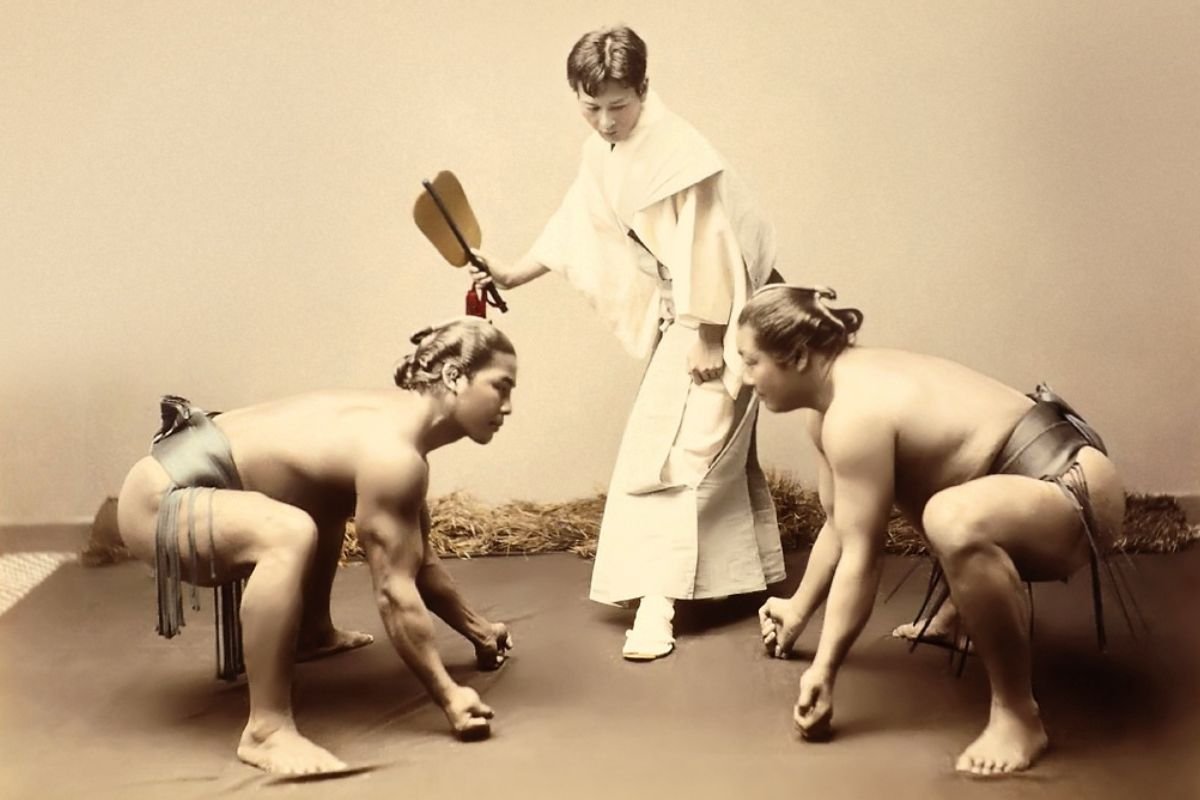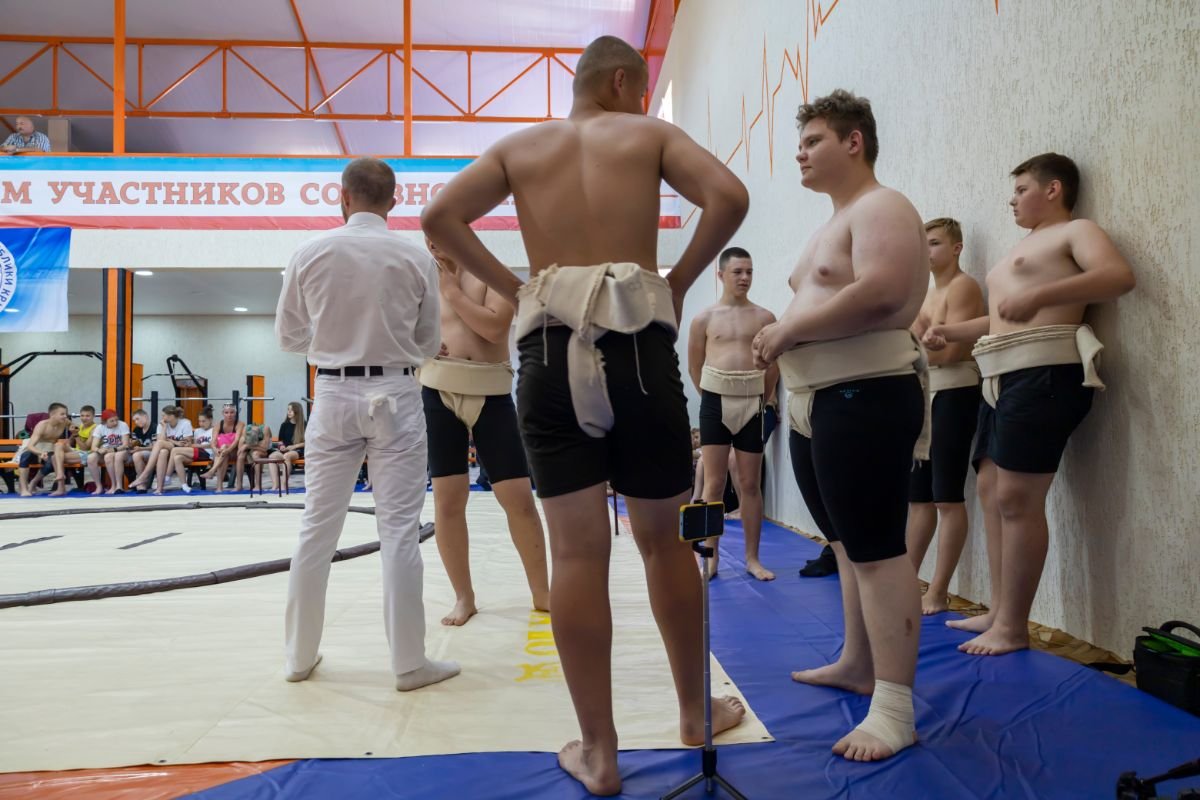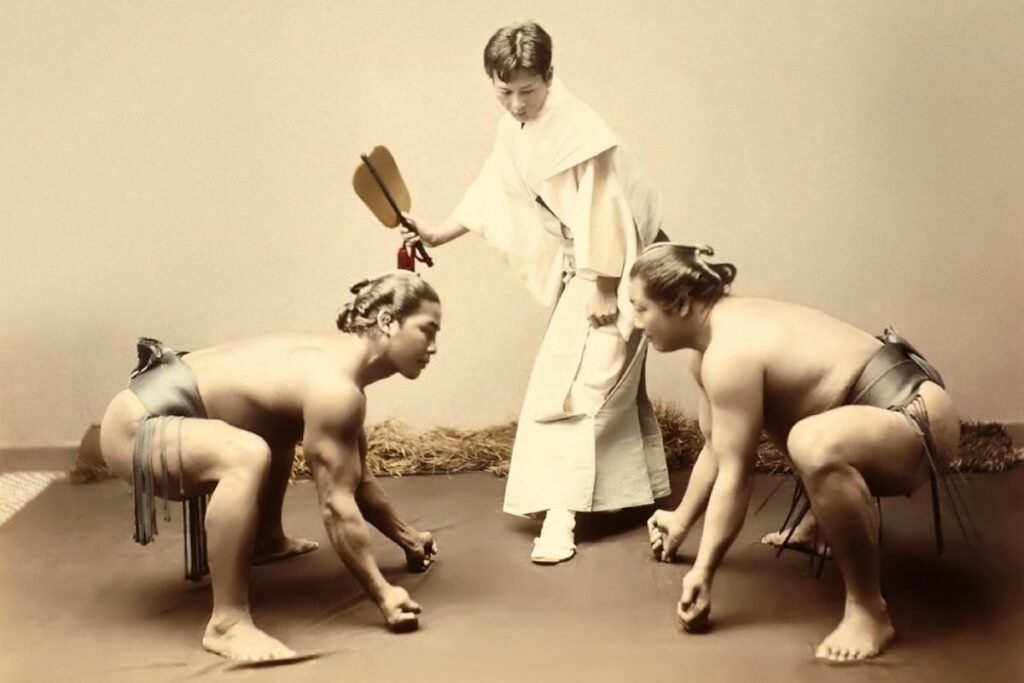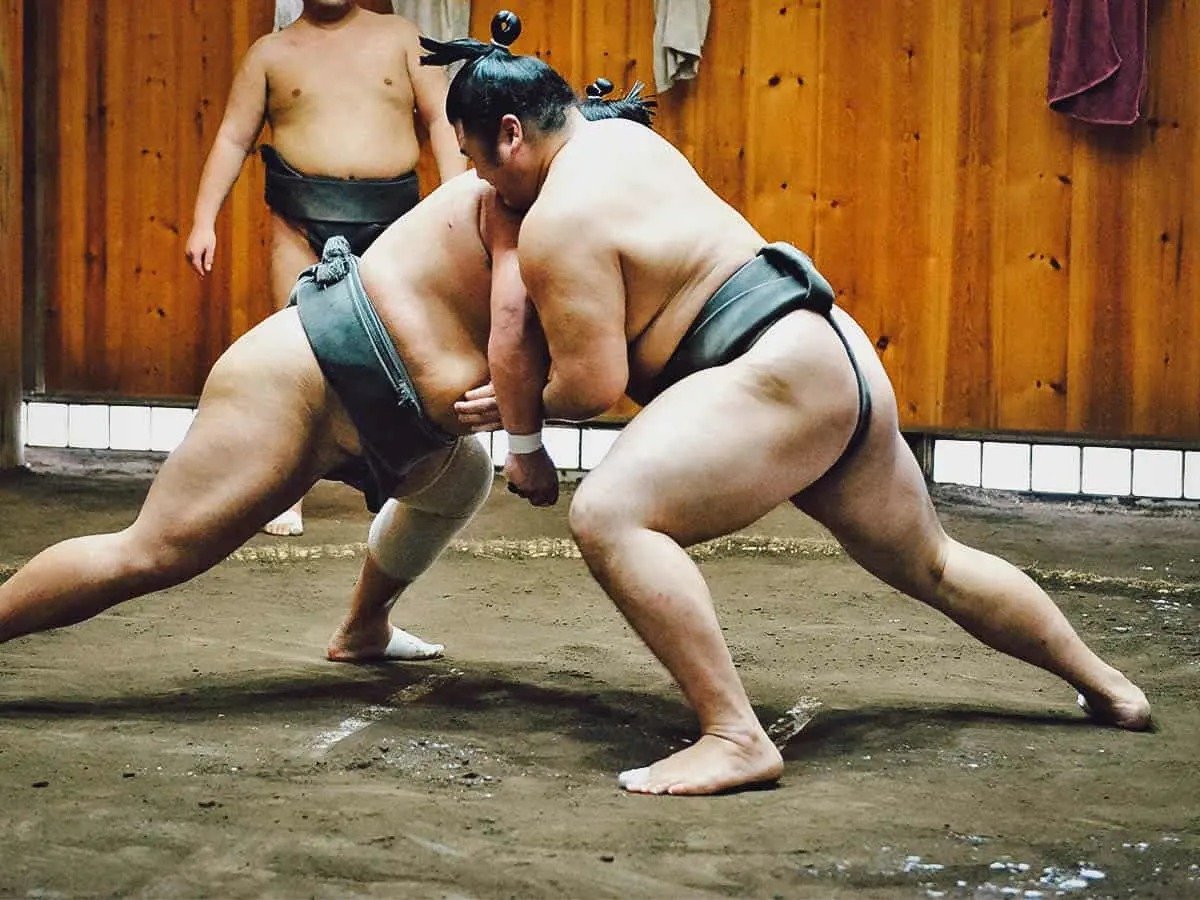In a culture steeped in tradition, there are very few traditions quite as iconic to Japan as that of Sumo wrestling.
Sumo is a sport that has been celebrated in the nation for multiple generations and is still enjoyed to this very day.

In all of the centuries since sumo first started, the sport has actually changed very little, and many of the earliest traditions within the sport are still carefully observed to this day!
One of the traditions associated with the sport is that of throwing salt ahead of the match.
But many outsiders to the sport find themselves rather mystified by this tradition, wondering what exactly its purpose is and whether it has any symbolic value.
If you have been wondering exactly this yourself, then you should read on down below, because today we are dedicating ourselves to finding out why sumo wrestlers throw salt!
Why Do Sumo Wrestlers Throw Salt?
As we mentioned in our introduction, the act of throwing salt is one of many traditions adhered to by the sport of sumo even to this day.
The reason for this seemingly random act ties back to early Shinto religious rituals of purification. When a sumo throws salt into the ring, they are effectively purifying it and removing any evil spirits that may be clinging to the ring.
This speaks to how many cultures regard salt for its purifying properties.
When sumos throw salt into the ring ahead of their match, they effectively render themselves at the mercy of the whims of the mystical and spiritual. It is as much a sign of faith as it is an attempt to purify the ring.
Many people also believe that the tradition of throwing salt into the ring continues because salt is known for having great drying properties.
A sumo’s hands, naturally, become very sweaty as they fight, so scattering salt onto the ring helps to remove some of the moisture that accumulates on their palms.
As well as this, salt also has antibacterial properties, which helps to make the hands of players, as well as the ring, more sanitized!
How Old Is The Sumo Sport?
When we consider just how traditional sumo is within Japan, we inevitably find ourselves wondering just how traditional the sport is, and when the sport originated.
The sport of sumo is difficult to place a distinct origin point on because there are very few historical records that can point to it.
However, legends have often stated that the sport was started more than 2,000 years ago to act as a form of entertainment for the gods!
However, some of the earliest documents describing the sport originate from around the Edo period, which is a stretch of time that covers 1600 to 1868.

The documents describing the sport are believed to have been where the rules of the sport were officially formalized. And the formal rules are still observed to this day.
Because of the fact that the sport is so closely tied to legend and ancient religious practices, most of the traditions observed in the sport, including throwing salt, are a direct reflection of this spiritual and legendary history.
At the start of the game, the sumo may often clap their hands together, which is believed to get the attention of the gods.
The iconic stamping of the feet in the ring is also believed to be an action that intimidates and chases away evil spirits occupying the ring.
Why Is Salt So Important In Shintoism?
As we mentioned earlier, Shintoism plays a key role in the history of the sport of sumo, and the Shintoist religion places special importance on salt.
Salt, within Shintoism, is believed to have purifying properties, similar to how it is believed to have the same properties in other cultures and religions like Christianity.
Salt is so strongly believed to be purifying that it is often left outside of the home in small piles. This means that, when a person enters the home, they are purified, which helps to keep any evil spirits from being given entry.
This same salt was also often scattered directly over the body, in an attempt to purify it of all of the evil spirits that can accumulate during the day. This is especially the case when it comes to funerals.
To Wrap Up
There we have it! The reason why sumos throw salt onto the ring ahead of their bout may actually sound rather simple, but is a reason that is steeped in tradition.
This tradition tells us a lot about Shintoism and the wider spirituality of the Japanese nation.
It also tells us a lot about how spirituality and Shintoism are able to persevere in a nation that continues to be on the cutting edge as a modern and technologically advanced powerhouse.
Throwing salt is just one of many traditions that are still observed in the sport of sumo, alongside other traditions like clapping the hands and stomping the feet.
This has all helped to make sumo one of the most fascinating sports to observe in the modern day, and is also a great touchstone for the highly-traditional Japanese nation!
Frequently Asked Questions
Why Do Sumo Wrestlers Slap Their Belly?
Sumo wrestlers are known for slapping their bellies before the match begins, and the reason why this is done is to help ward off evil spirits by intimidating them. This is also the same reason why sumo wrestlers stomp their feet.
Why Do Sumos Wear Thongs?
While they may look similar to thongs, the outfits worn by sumo wrestlers are actually referred to as ‘Mawashi’, and they are an incredibly traditional piece of clothing!
Does Sumo Have A Weight Limit?
Unlike many similar sports, sumo does not actually have weight classification, which means that some sumos may find themselves up against a player more than twice their weight.
- What Is a Maiko? - July 13, 2025
- What Does Domo Arigato Mean? - July 12, 2025
- What Does Naruto Mean? - July 12, 2025









